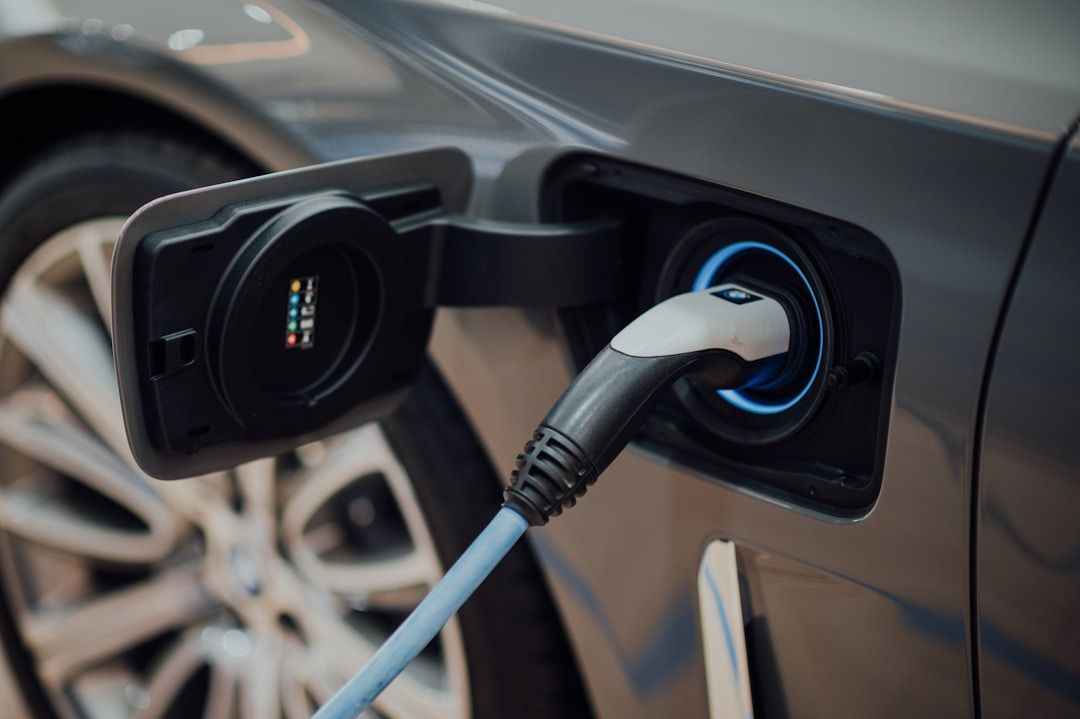
Electric Vehicles: Cutting Through the Smoke and Mirrors

- Let's have a frank conversation about Electric Vehicles (EVs). If you've been following the automotive industry news lately, you've probably noticed an interesting pattern: the same companies that fought against emissions standards for decades are now suddenly "concerned" about the environmental impact of EVs. Isn't it fascinating how that works?
The FUD Factory (Fear, Uncertainty, and Doubt)
Let's address the elephant in the room: the coordinated campaign of misinformation about EVs. You've probably heard these arguments:
- "But what about the mining for batteries?"
- "The grid is too dirty for EVs!"
- "Range anxiety makes them impractical!"
Sound familiar? Let's break down these claims and see
what's really going on.
The Battery Mining Myth: A Classic Case of Selective Outrage
Here's what the fossil fuel industry doesn't want you to know about EV batteries:
1. Innovation is Moving at Lightning Speed
- Battery technology is advancing rapidly, requiring fewer critical minerals
- New chemistries are reducing or eliminating the need for cobalt
- Solid-state batteries are on the horizon, promising even better performance
2. The Recycling Revolution
- Up to 95% of battery materials can be recycled
- Growing recycling infrastructure is creating a circular economy
- Compare this to fossil fuels: once burned, gone forever
3. The Hidden Truth About ICE Vehicles
- We never talk about the environmental cost of oil extraction
- Or the constant oil spills
- Or the perpetual burning of fossil fuels throughout the vehicle's life
"But the Grid is Dirty!" - The Self-Defeating Argument
This might be the most puzzling argument from EV critics. Let's think about it:
- "We can't have EVs because our grid is powered by fossil fuels!"
- Furthermore: "Let's keep burning fossil fuels directly in our cars!"
Here's the reality:
- EVs are significantly more efficient than ICE vehicles, even on a dirty grid
- An EV running on coal-powered electricity still produces fewer emissions than an ICE vehicle
- The grid gets cleaner every year, making EVs progressively greener
- ICE vehicles? They'll be burning fossil fuels until the day they're scrapped.
The Economics Don't Lie
Let's talk money:
- Battery prices have dropped by over 90% in the past decade
- EVs typically pay for themselves in 2-3 years through fuel savings
- Maintenance costs are fraction of ICE vehicles
- No oil changes, fewer moving parts, less to break
The China Factor: While Others Talk, China Acts
While Western automakers were dragging their feet, China was busy building the future:
- World's largest EV market
- Dominates global battery production
- Leading in battery technology innovation
- Creating comprehensive charging infrastructure
The Asian EV Revolution
The transformation is particularly visible across Asia:
- Thailand has seen EV sales surge by over 400% in 2023
- Indonesia is leveraging its nickel reserves for battery production
- Japan and Korea are racing to catch up in battery technology
- Singapore is planning to phase out ICE vehicles by 2040
Range Anxiety: Yesterday's Problem
The "range anxiety" argument is getting tiresome:
- Modern EVs regularly exceed 300-mile range
- Fast-charging networks are expanding rapidly
- Most daily commutes are under 40 miles
- When's the last time you drove 300 miles without a break?
The Writing on the Wall
Let's be clear about where this is heading:
- Major cities are planning to ban ICE vehicles
- Carbon pricing is becoming widespread
- Battery technology continues to improve
- Charging infrastructure is expanding daily
What About Jobs?
Another favorite talking point of EV critics. But here's the reality:
- EV manufacturing is creating new jobs
- Battery production facilities are major employers
- Charging infrastructure needs installation and maintenance
- The transition is creating more jobs than it's replacing
The Bottom Line
The resistance to EVs isn't about technical limitations - it's about protecting existing business models. The same players who denied climate change for decades are now suddenly "concerned" about the environmental impact of EVs. Coincidence? Hardly.
What Can You Do?
1. Question the Sources
- Who's making these anti-EV arguments?
- What's their stake in maintaining the status quo?
- Follow the money
2. Look at the Data
- Battery prices continue to fall
- Range continues to increase
- Charging infrastructure keeps expanding
3. Think Long-term
- The grid gets cleaner every year
- Battery technology keeps improving
- Fossil fuels only get more expensive
A Call to Action
Don't let the same industries that fought against environmental protection for decades now delay the EV transition with manufactured concerns. The technology is ready. The economics make sense. The only question is: are we going to let misinformation slow down progress once again?
Author's Note: This assessment is based on current market data and industry trends. Given the rapid pace of EV technology development, some statistics may have improved further by the time you read this.
Asian Sustainability Network 2025

Asian Sustainability Network
The Asian Sustainability Network is the go-to platform for Sustainability leaders and professionals, young professionals, recent graduates - anyone wanting to apply sustainability best practices to future-proof their company and career.
With a mission to empower collaboration, knowledge sharing and innovative practices, our community serves as a training, networking and resource hub to connect individuals and organisations engaged in climate and sustainability initiatives.
©Copyright 2025 -Asian Sustainability Network
PT ASIAN SUSTAINABILITY NETWORK
Sahid Sudirman Center
Jl. Jendral Sudirman, 86
Jakarta Pusat 10220, Indonesia
GET IN TOUCH
Email:
Info@asiansustainabilitynetwork.com

JOIN OUR COMMUNITIESSCAN TO JOIN THE ASN GREEN CAREER HUB
Keep up to date with Sustainability Careers, Companies and Connections across SE Asia.
Keep up to date with Sustainability Careers, Companies and Connections across SE Asia.
